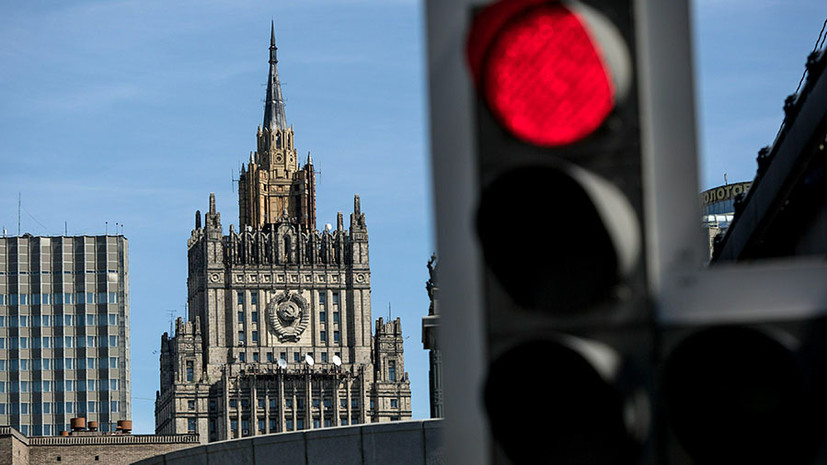The Russian Foreign Ministry responded by expanding the American stop list by another 25 people.
US citizens responsible for the formation of the Russophobic course, as well as members of the family of US President Joe Biden, fell under restrictive measures.
“As a response to the ever-expanding US sanctions against Russian political and public figures, 25 American citizens are included in the stop list from among those responsible for the formation of the Russophobic course of senators, members of the so-called McFaul-Yermak group, which develops recommendations regarding anti-Russian restrictions, as well as family members of President Joe Biden," the Foreign Office said in a statement.
The retaliatory Russian sanctions, in particular, fell on Jill and Ashley Biden (wife and daughter of Joe Biden), members of Congress from the Republican Party Charles Grassley and Mitch McConnell, former US Deputy Secretary of State David Kramer, and the former head of the policy and implementation of economic sanctions State Department Edward Fishman.
Sergei Tsekov, a member of the Federation Council Committee on International Affairs, in a conversation with RT indicated that the list included US representatives involved in Russophobic politics.
“The selection of candidates for this list was not difficult.
It includes those persons who are engaged in anti-Russian politics.
After all, why visit Russia for those individuals who suffer from a serious illness called “Russophobia,” he said.
According to Dmitry Belik, a member of the State Duma Committee on International Affairs, this retaliatory measure "makes it clear Russia's attitude towards those who too zealously throw stones from across the ocean and force other countries to do it."
Moscow is imposing personal sanctions on US officials and their associates in response to a series of unprecedented US restrictions, including banning top Russian officials from entering the United States.
So, on March 15, the Russian Foreign Ministry added to the stop list Joe Biden, US Secretary of State Anthony Blinken, Pentagon Chief Lloyd Austin, Chairman of the Joint Chiefs of Staff Mark Milley, Assistant to the President of the United States for National Security Jacob Sullivan, CIA Director William Burns, former press secretary of the White House Jennifer Psaki, Deputy Assistant to the President of the United States for National Security Duleep Singh, Director of the Agency for International Development Samantha Powers, son of US President Hunter Biden, former US presidential candidate Hillary Clinton, First Deputy Secretary of the Treasury Adewail Adeyemo, President and Chairman of the Board of Directors Exportno -Import Bank of Reth Joe Lewis.
“This step, taken as a counter-reaction, was an inevitable consequence of the extremely Russophobic course taken by the current US administration, which, in a desperate attempt to maintain American hegemony, relied on the frontal containment of Russia, discarding all decency,” they explained on Smolenskaya Square.
In the future, the list of US citizens who fell under personal sanctions, including a ban on entry into the Russian Federation, expanded several times.
As of June 28, 1,048 Americans are on the stop list.
Also on russian.rt.com “They turned out to be double-edged”: why in the USA they started talking about the excessive sanctions against Russia
Russia is always guided by the principle of reciprocity and the principle of mirroring in the context of sanctions lists, Nikita Danyuk, deputy director of the Institute for Strategic Studies and Forecasts of the RUDN University, a member of the Public Chamber, explained in a comment to RT.
“The Americans are extremely biased in this sense, they will try to say that our retaliatory sanctions are not justified, although in fact it is the Americans who spin the sanctions flywheel every time ... The fact that we have expanded the sanctions list against a number of US citizens is absolutely correct , this practice should continue to be implemented, ”the political scientist said.
In turn, Konstantin Blokhin, a researcher at the Center for Security Studies of the Russian Academy of Sciences, noted that Moscow is calmly approaching the issue of imposing retaliatory sanctions: “Our reaction is natural, there is nothing extraordinary here.”

